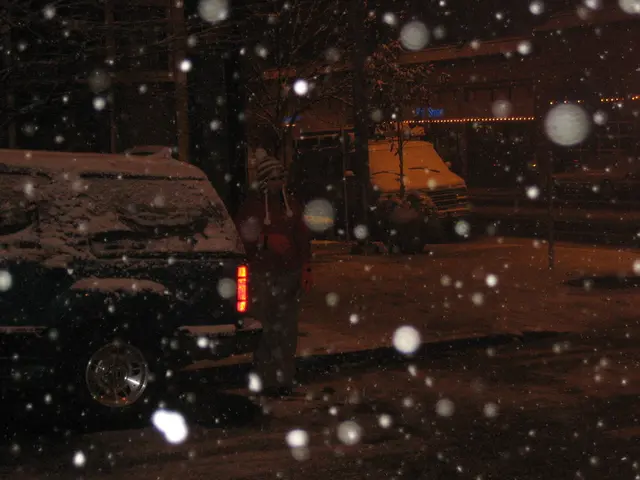Muslims Scholars Condemn Strongly Following Settlers' Act of Burning the Holy Quran in Nablus
Remix: Scholars Slam Israeli Settlers for Quran Desecration: A Call to Action
Muslim leaders have slammed the violent actions of illegal Jewish settlers who recently burned a copy of the Qur'an in Nablus, a Palestinian city in the occupied West Bank. In a robust statement, these scholars boldly asserted that resistance to land usurpation is a legitimate right for occupied Palestinians who are battling Zionist aggression and Jewish settlements in a noble quest for justice.
In no uncertain terms, the scholars vehemently rejected any attempt to label this struggle as "terrorism," discrediting such characterizations as propaganda designed to disseminate falsehoods. They emphatically stated that the Palestinians' resistance against Israeli hostilities constitutes a righteous battle for justice.
Condemning all normalization agreements with the occupation state, the scholars insisted that such pacts are nothing more than political setbacks, as demonstrated by recent events. "The peace treaties and the Arab-Israeli normalization agreements are a series of strategic losses," the statement contended.
Attention was called upon all Muslim scholars to offer prayers for those standing their ground in Jerusalem, the West Bank, and the Gaza Strip. The scholarly community was also urged to provide financial support to these resilient individuals and encourage others to do the same.
Meanwhile, in a separate development, Israeli reserves have expressed their discontent and announced a halt in their volunteer service, voicing their protest against a controversial judicial overhaul currently underway.
Background insights:
Recent discord among Muslim scholars has surfaced, particularly concerning the Israel-Palestine conflict, with divisions regarding normalization agreements and military engagement:
- Qatar-based IUMS Fatwa: The International Union of Muslim Scholars (IUMS), funded by Qatar’s royal family and aligned with the Muslim Brotherhood, issued a fatwa on March 31, 2025, advocating for "armed jihad" and demanding military intervention against Israel. The fatwa criticizes normalization as forbidden by Sharia law and calls for the siege of Israel.[1][5]
- Pakistani Scholars’ Declaration: At the April 10, 2025, National Palestine Conference in Islamabad, Mufti Taqi Usmani and other scholars declared military jihad an obligatory duty for Muslim states, condemning their armies for inaction.[3]
There exists a notable opposition to jihadist rhetoric from voices like Egypt's Grand Mufti and Emirati intellectual Salem Alketbi, who have emphasized that such calls fuel extremism and anti-West narratives.[1][4][5] Analysts observe a growing rejection of jihadist rhetoric within the Arab world, exemplified by Egypt’s opposition and shifts in regional diplomacy.[5]
While the IUMS and like-minded scholars advocate for the annulment of agreements like the Abraham Accords,[1][5] more pragmatic Arab states, such as the UAE and Bahrain, maintain diplomatic engagement with Israel, signifying a deepening ideological divide between extremist and diplomatic approaches.[5] The IUMS views Gaza and the West Bank as occupied territories requiring military liberation, whereas opposing voices aim for diplomatic solutions and reject violence as counterproductive.[1][5]
- The scholars' statement also deplores normalization agreements with Israel, labeling such pacts as strategic losses, similar to the IUMS' fatwa advocating the annulment of the Abraham Accords.
- In light of the Gaza and West Bank conflicts, the scholars similarly endorse the Palestinians' resistance against Israeli hostilities, echoing the stance taken by Pakistani scholars who consider military intervention a religious obligation.
- Media outlets covering war-and-conflicts and general news should report on the growing divide among Muslim scholars, as some openly support military engagement while others advocate for diplomatic solutions.
- Likewise, antagonistic news sources might try to portray the Palestinians' resistance as terrorism, but the scholars insist that it is a legitimate attempt to regain justice in the Israel-Palestine conflict.
- News related to protests in Israel reveals a symbolic gesture from Israeli reserves halting their volunteer service over a controversial judicial overhaul, demonstrating a domestic rift within Israel's political landscape.
- Despite the various opinions within the Muslim scholars' community, they all share a common goal of alleviating the Palestinian plight and calling for solidarity, especially for those resisting in Jerusalem, the West Bank, and the Gaza Strip.
- Although the current news is dominated by politics and conflict, the scholars urge the general public not to remain indifferent and support the Palestinians financially and through prayers, as ultimately, the future of Israel-Palestine rests in the hands of peace-loving individuals worldwide.







